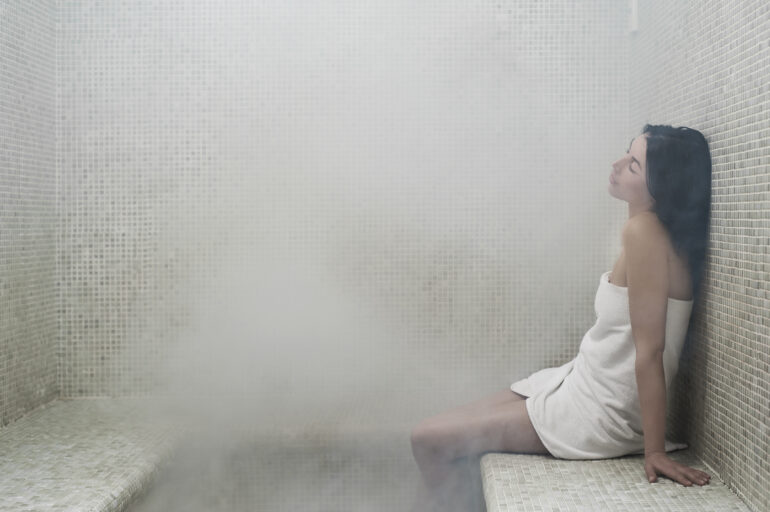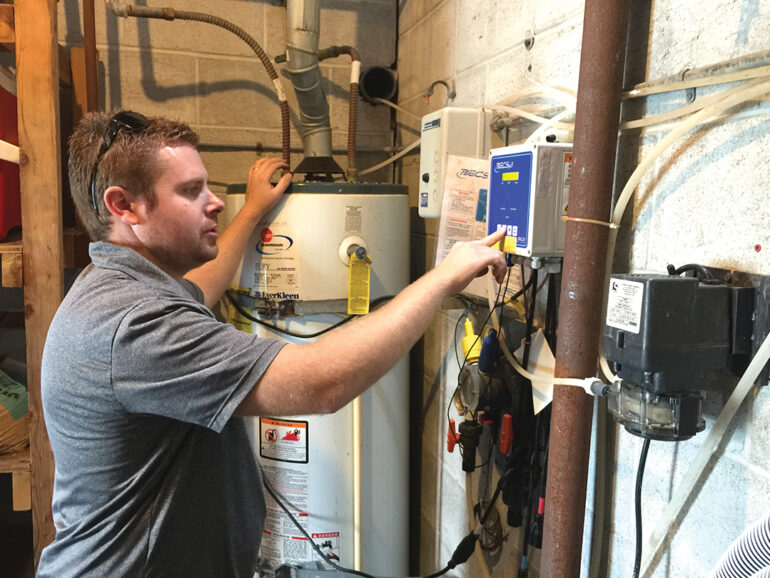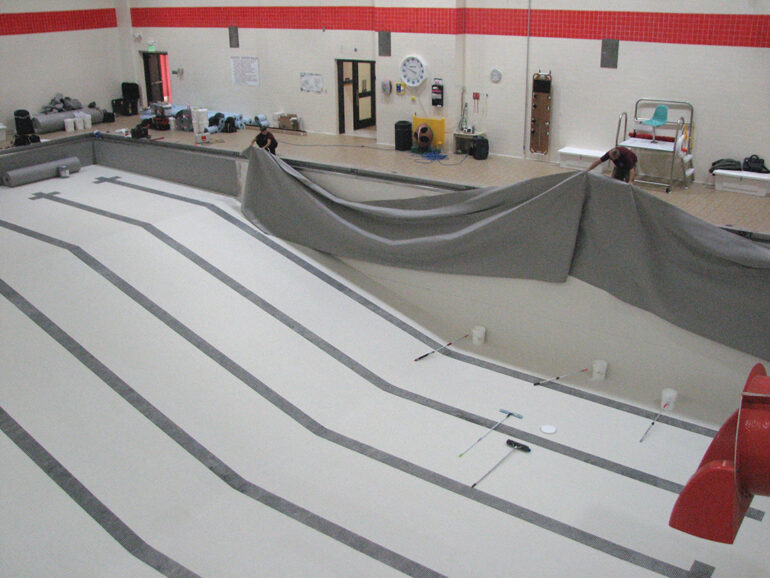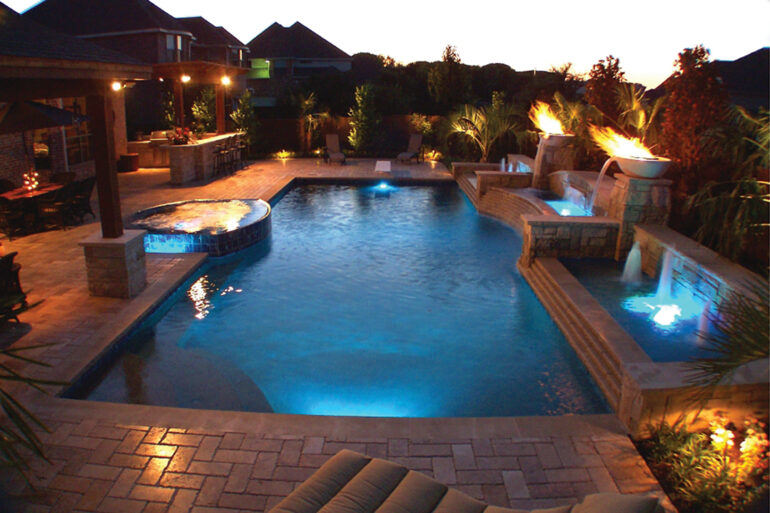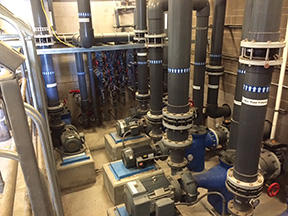Starting Commercial Service Work
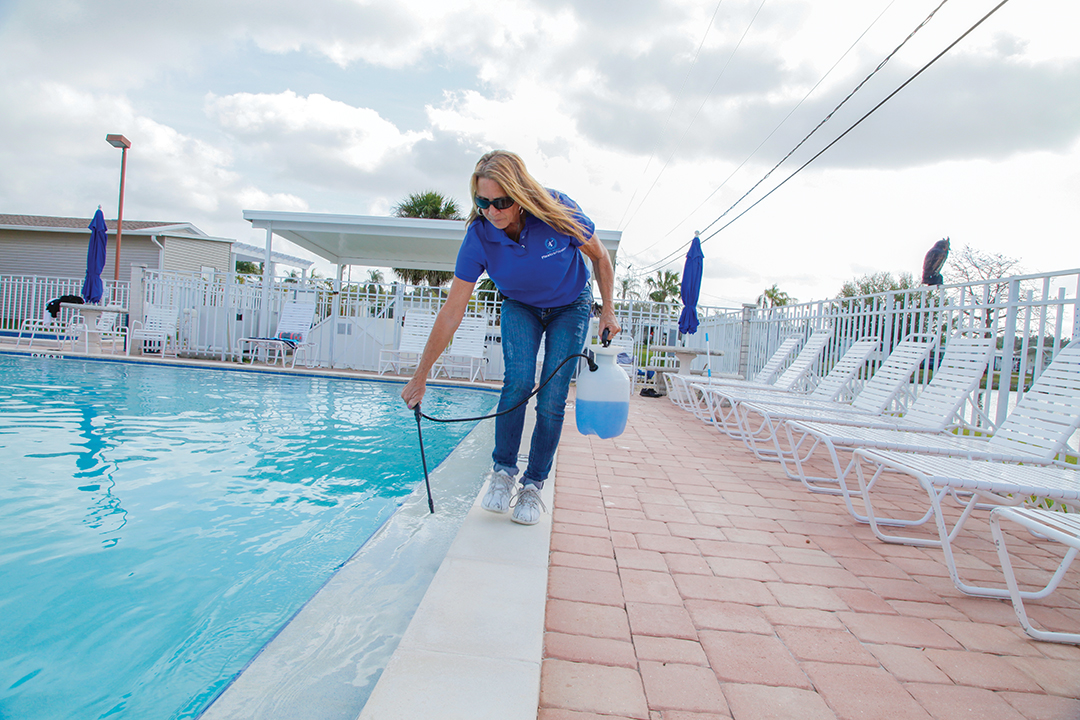
You hear through the grapevine that a local school district is looking to bid out their pool service and maintenance work. You’ve built up a pretty sizeable residential service route and would like to add some commercial clients; this could be the perfect opportunity. But before you send over a proposal, and become responsible for the health of a whole school district of children, you need to ask yourself a few questions.
Do I have the knowledge to care for this pool properly?
Tom Sanger, pool division manager at LaPensee Plumbing & Pools in Holmes Beach, Fla., started the then–plumbing company’s pool department seven years ago, just doing residential service work. Now the company does not only residential, but also commercial maintenance and repair work, and even builds pools.
“We like to have our guys get their Certified Pool Operator certification,” Sanger says. “When you go through that class, it teaches them why we’re doing what we’re doing. We do a lot of training with our guys who take care of commercial pools with people who have been doing it for substantially longer than them. Because there’s so much more that goes into taking care of the system that controls a commercial pool.”
And if you want to do repairs as well as regular maintenance, be sure you are properly certified and licensed by your state to do so. In Florida, that meant Sanger needed to get his Commercial Pool Contractor license.
“What we run into is people who just have a CPO, and they try to take care of the pool,” Sanger says. “Next thing you know, they try to dip their hands into doing some of the repair. That’s scary when the guys who don’t have their repair license are doing that sort of thing. I keep code books in my truck to make sure that everything is up to date.”
Do I have enough insurance?
Commercial pools usually require their service contractors carry a certain level of general liability, so in order to be taken seriously make sure that you have enough.
“Most commercial properties require a million-dollar minimum liability policy,” says Wes Burdine, owner of aquatic energy consulting business Call the Pool Guy in Kingsport, Tenn. Burdine has serviced both residential and commercial pools. “It’s best to carry as much as you can afford,” he says, “because they’re going to sue everybody if something happens.”
Sanger says they not only have a million-dollar policy, but they are also sure to use quality carriers and keep it up to date. “You have people’s health in your hands when you’re taking care of commercial pools,” he says.
While it should certainly be taken seriously, Burdine says, it shouldn’t scare you off from stepping into the commercial market. He says if you take responsibility the health of each family whose pool you care for, this shouldn’t be that different.
Do I know what to charge and how to structure a contract?
Pricing a commercial job isn’t much different than residential; it’s just bigger and takes more time.
“Keep the price up a little bit,” Sanger says. “Let’s keep our industry relevant and professional. I gauge it off how long we are going to work at the pool at a decent wage, and then I go through and take into consideration the usage as far as how much chemical the pool is going to use, and what chemicals it is going to need. What type of system is on it, and is it going to require different chemicals than a normal pool? I add it all up, do an annual contract and break it own from there.”
“You can keep your margin the same,” Burdine says. “You charge so much for this size of a pool, and you’re going to be spending X amount more time on a commercial pool because they’re bigger.”
Burdine says institutional pools, like a YMCA or school, take more time (and are more lucrative) than homeowners’ associations and hotel/motels.
“There’s not much difference between residential and home owners associations except possibly the frequency you have to attend to the pool,” Burdine says.
Burdine says you need to know the right questions to ask and be prepared to interview them, as well as or better than they interview you. Make sure you’re talking to the right person, and get documentation of your communications.
“With a residential client, sometimes the wife says, ‘Yeah, go ahead,’ and the husband comes home and says, ‘What do you mean?’” Burdine says. “Multiply that times 10 with a homeowners’ association or a school board. If you can, get a single point of contact who can give the yes or the no. To me, that’s critically important because if you don’t, nothing ever gets done.”
Sanger prefers annual contracts so he can readjust the next year as his costs increase. Burdine tries to get three-year contracts but builds a percentage increase into each year.
“It’s a monthly bill, but we sign them up annually with the clause that they can cancel or we can cancel with a notice,” Sanger says. “We try to keep the lines of communication open with our person in charge of those accounts pretty closely.”
Can I market to and close commercial clients?
“It’s hard to market commercial pools — it really is,” Sanger says. “The first thing is get going in residential and get your name out there as a viable and trustworthy pool company.”
In order to land commercial clients, presenting yourself as an educated and qualified expert makes a big impact. Both Burdine and Sanger hold free classes where they invite potential clients to come and learn about a variety of related topics.
“And just try to stay in their face as much as possible,” Sanger says.
interview tips
Burdine says you shouldn’t take on a commercial job unless you have this information.
• How often do you want me to come?
• How many people are using this pool?
• Has someone else been taking care of it?
• Have you done it within your organization?
• How many people have worked on it?
• How much time do they spend doing it?
• What have been your normal chemical spends over the last three years?

